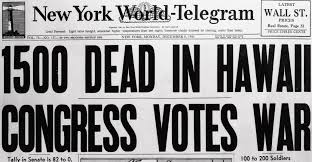Blog : 9/11 and Paris Terrorism: The Difference
by Peter Leeds on November 17th, 2015



Many nations across Europe appear chaotic, as they scramble for answers, launch raids, and engage in significant manhunt operations. Daily life for the citizens of France has been significantly altered, however this may not bring the investment world to it's knees.
As horrific as the Paris terrorist attacks were, they have not yet derailed global stock markets. We need only look back to the terrible days after 9/11 for some clues as to what to expect.
On September 11th, 2001, all major American stock markets were closed for days. When they re-opened, they collapsed beneath the panic selling.
We'll use the DJIA for our example, but all markets behaved in similar fashion. The index sank from over 11,000 all the way down to 8,000 over the following days.
Yet there was a bright spot at the end of the tunnel. Specifically, after investor capitulation, the DJIA rose all the way towards 10,500 by March. This represented a recovery from the low point of over 32%, within six months.
[See Peter's explaination of capitulation in penny stocks]
Of course, there are many differences between 9/11 and Friday's attacks in Paris. From the perspective of some investors in American stocks, the latest troubles probably feel like a world away.
Immediately after 9/11, there was a significant degree of confusion, shock, and a widespread interruption to trading. This is not to say that the assaults in Europe don't have confusion and shock, but what they do not suffer is the uncertainty.
Within days, it is known:
- who committed the acts of terror
- where they came from
- what their motivations were
- how many others there may be
In contrast, there was a "dark period" after 9/11, where politicians, military, and civilians were unclear on who was behind the 4 airliner hijackings. There was uncertainty about who we were at war with, and if we were still vulnerable.
As explained previously, the one aspect of investing that stock markets hate more than bad news is uncertainty. There may be economic ramifications to the events (which of course pale in contrast to the deaths and injuries), but they won't be based on as much uncertainty.
Think about the attack on Pearl Harbor, where it was crystal clear:
- who perpetrated the attack
- what their strengths were
- where we could find them
So in 1941, it was only a matter of knowing what to do, and getting to work doing it. Well, even as you read this, governments all across Europe and around the world are deciding what to do, and getting to work doing it.
You are reading this old blog entry because we still like to reference it. :-)
Get Our Best Low-Priced Investments
- don't have the time?
- can't do all the work required?
- want selections from the authority?
For only $199 per year, we give you our best high-quality, low-priced stock picks. Along with a full team, Peter Leeds is the widely recognized authority on small stocks. Start making money from penny stocks right away.


